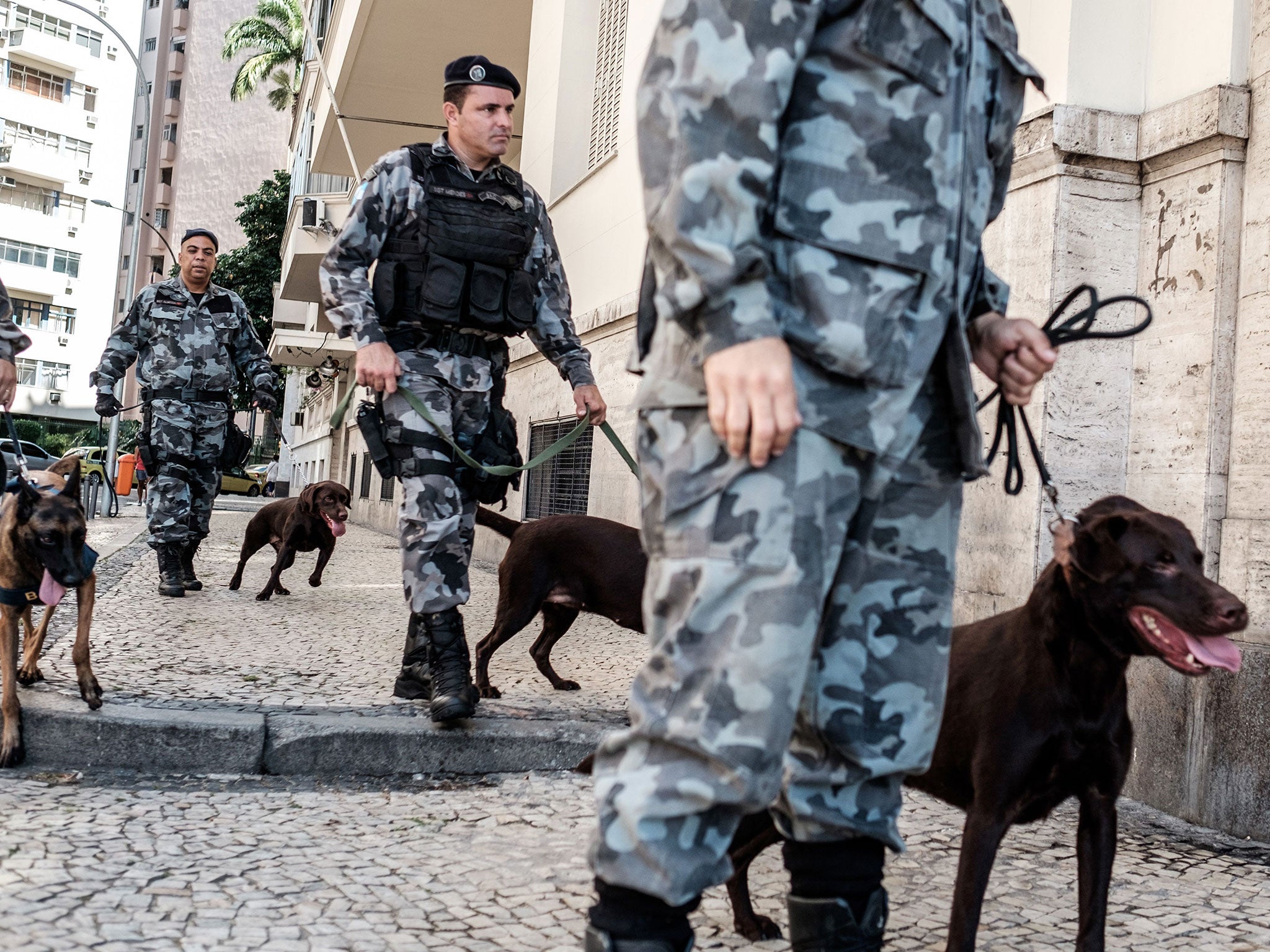Rio 2016: Security chief for Olympic Games quits as corruption concerns mount
Preparations for the Rio Games are also overshadowed by fears over the Zika virus and the threat of terrorism

One of Brazil’s most senior security officials has admitted that the country’s widening political crisis could lead to “international distrust” of arrangements for this summer’s Olympic Games.
The remarks by Andrei Rodrigues, secretary for major events at the Justice Ministry, followed the abrupt resignation of the commander of the national security force involved in the preparations for the Games in Rio de Janeiro.
Colonel Adilson Moreira’s departure came hours after President Dilma Rousseff sacked the country’s Sports Minister, George Hilton, in response to a decision by his own political grouping, the Brazilian Republican Party, to withdraw from her embattled coalition government. Mr Hilton, who was in the job for little over a year, had attempted to hold on to his position by switching parties, but to no avail.
Colonel Moreira was in charge of about 9,600 officers out of the thousands of police, soldiers and security personnel earmarked for Rio’s Games. In an email to his subordinates, he reportedly criticised the Rousseff government, claiming that he was “embarrassed” to be working for what he called an “unscrupulous group”.
Critics have dismissed his resignation as a “fit of political pique” designed to embarrass the government and undermine safety measures in the run-up to the Games.
With the event now just four months away, Ms Rousseff faces the growing prospect of impeachment proceedings over an alleged corruption scandal, and her government is struggling to tackle a serious economic crisis. Preparations for the Rio Games are also overshadowed by fears over the Zika virus and the threat of terrorism.
Mr Rodrigues said the changes in key positions “are worrying”, adding: “All this political instability and turbulence along with the economic difficulties in the country is not good and could generate international distrust in the organisation of the event.”
However, he insisted: “People need to know that the security operation involving more than 80,000 men will not be affected. There will be no change in our course. The institutions are larger than people.”
Public security expert Paulo Storani, an ex-colonel with Rio’s special forces, is critical of the large number of security personnel being employed for the Games, compared to the 42,000 used during the London 2012 Olympics. “What has happened is Brazil has under invested in security technology and equipment for the Olympics and is trying to compensate by doubling up the numbers on the ground with more men,” he said. “Investing in high tech security equipment would have been far more effective than depending so heavily on the eyes and ears of individuals.”
However, Mr Rodrigues said using security personnel was a proven tactic which was successfully used in previous major events such as the Pan American Games (2007). He added: “This is the largest security in the history of the country and we are ready to ensure the event is a peaceful and safe one.”
Join our commenting forum
Join thought-provoking conversations, follow other Independent readers and see their replies
Comments